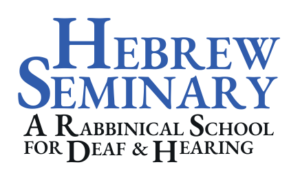Were Our Ancestors Genderqueer? Commentary on Parashat Toledot 5784
By Rabbah Rona Matlow, Professor of Jewish Diversity Studies at Hebrew Seminary
NOTE: The following message contains adult content. Reader’s discretion is advised.
Several years ago, I wrote a series of queer midrashim (מדרשים)—expositions that expand the scope of the Torah’s concerns, usually answering questions that the Torah does not. The Torah is replete with missing words, strange turns of phrase, and unusual letters. But there are clues that biblical scholars see that cause us to challenge the texts. Classically, rabbis coincident to the Mishnah and Talmud wrote various midrashic texts, including the works now anthologized as Midrash Rabbah.
The first queer midrash that I wrote was an exploration of the life of Jacob, the third of Avoteinu (אבותינו), translated literally here as “our fathers,” since we are talking about Jacob specifically. In this midrash I authored, I understood Jacob as genderqueer, as explained below.
When we read biblical texts, we almost always know any character’s sex—their physical anatomy—and their very body defines their societal roles. However, we cannot always be certain as to how these characters should be identified in terms of what we call gender in modern times. Because the societal functions our ancestors played are part of what is considered gender, when examining biblical texts, I refer to our ancestors’ ‘sex/gender’ identities—acknowledging the interplay between our ancestors’ anatomies and their place in society.
In Parashat Toledot, Esau and Jacob—brothers—find themselves inhabiting very different spaces and drawn to different habits. We read:
וַֽיִּגְדְּלוּ֙ הַנְּעָרִ֔ים וַיְהִ֣י עֵשָׂ֗ו אִ֛ישׁ יֹדֵ֥עַ צַ֖יִד אִ֣ישׁ שָׂדֶ֑ה וְיַעֲקֹב֙ אִ֣ישׁ תָּ֔ם יֹשֵׁ֖ב אֹהָלִֽים׃ וַיֶּאֱהַ֥ב יִצְחָ֛ק אֶת־עֵשָׂ֖ו כִּי־צַ֣יִד בְּפִ֑יו וְרִבְקָ֖ה אֹהֶ֥בֶת אֶֽת־יַעֲקֹֽב׃
The [two] lads grew up, and Esau was a hunter, a man of the field, and Jacob was a simple man, who dwelled in tents. Isaac had loved Esau because game was in his mouth; however, Rebecca would love Jacob. (Genesis 25:27–28.)
Esau is not just any man. He is manly—a hunter, bringing back freshly caught game. Jacob’s manliness is less clear though. Yoshev ohalim (“יֹשֵׁ֖ב אֹהָלִֽים”)—he “dwelled in tents.” Rashi (1040–1105, France), commenting on these words, shares a midrash that claims that Jacob had dwelled in the tents of Noah’s descendants Shem and Ever, who, in the midrashic imagination, ran an academy. This tradition teaches that Abraham, Isaac, and Jacob attended this academy and studied and followed the entire Torah. (Given that Leviticus 18:21 prohibits child sacrifice, and Abraham tried to sacrifice his child in Genesis 21, I have a very difficult time accepting this tradition.)
When I was in first grade, living as a boy, I was often found playing with the girls. This is noteworthy because my fellow first graders (and many others since) were socialized such that boys play with boys and girls play with girls—that this boundary not be crossed. Yet I transgressed that social boundary on a daily basis without knowing why.
In the biblical context, regarding sex/gender roles, it is women who dwell in the tents, while the men are in the fields. Jacob dwelling in the tents resonated with me very personally. It meant that he was queering his sex/gender roles that were expected of him. We even see this in the following verse when Jacob is found cooking lentil stew.
People may argue about the point that Jacob ultimately has two wives and two co-wives and fathers 13 children. However, history is replete with LGBTQ+ people who have lived double lives (or even more lives) because they have not been able to actualize their true identities. Jacob siring children and being a husband has no bearing on his true genderqueer identity.
This is one of the many ways that queer scholarship can read a question or problem in a text and see a possible solution. None of us were there when Jacob was alive, so we cannot know with any certainty. But the important takeaway from this is that genderqueer readers can read this text and be comforted by the fact that one of the most important people in Jewish tradition can be read as genderqueer. This reading takes absolutely nothing away from the Jacob of Jewish tradition; it is not a zero-sum game. Reading Jacob as genderqueer does not make him any less the person in whose name Jews pray to God three times a day, nor does it take away from the fact that we are all the People of Israel (Jacob’s second name as per Genesis 32:29).
Am Yisrael Chai (עם ישראל חי)—may the People of Israel live!
The weekly Torah commentary of Hebrew Seminary: A Rabbinical School for Deaf & Hearing brings new insights to students of the Torah across the world with no barriers. To help support the culture of learning Torah and teaching Torah at and beyond Hebrew Seminary, please consider making a donation today.
